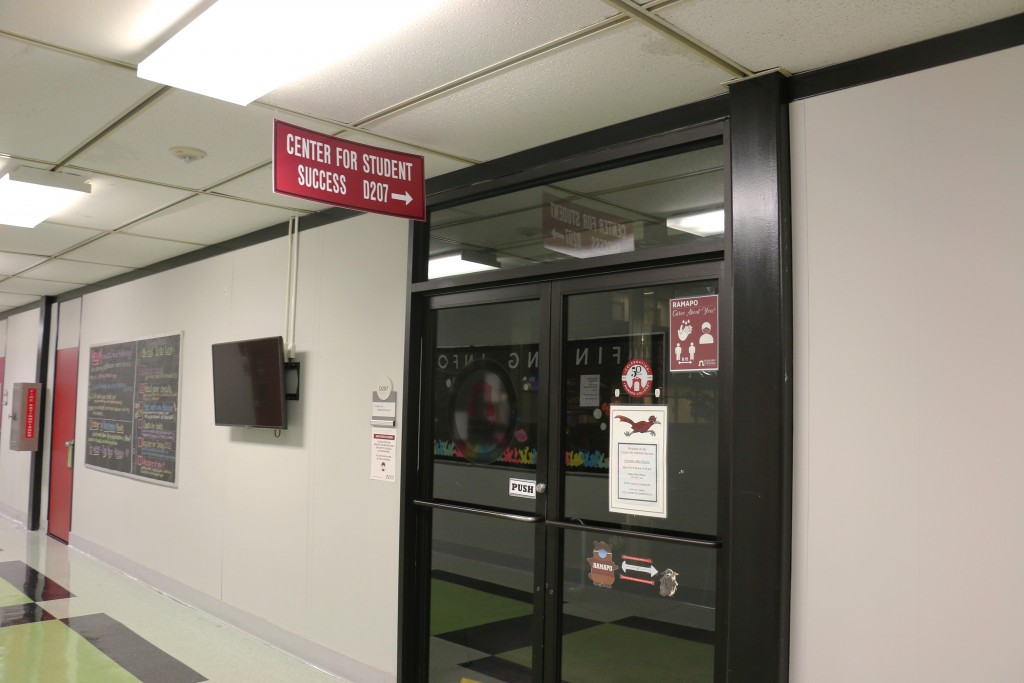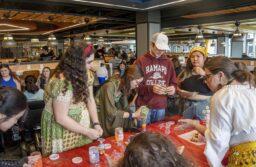
Photo courtesy of Emily Melvin.
October is a busy month for most offices on campus, but for Ramapo’s Center for Student Success (CSS), it signals the height of fall academic advising. Members spend each day meeting with students to plan their remaining college careers, focusing primarily on outlining the next semester.
The Academic Advisement Council, a committee composed of CSS staff, professors and the Provost, are responsible for learning more about their assigned students to hold a productive, tailored conversation about their future. Acting as one of the students’ major campus resources, advisers find that immediately establishing a personable relationship with students yields greater outcomes.
Associate Director of Academic Advisement John Yao expresses his gratitude for his colleagues, describing them as “top notch” and “serious about getting to know students.” Yao also explained that advisement meetings are not limited to scheduling classes, but can be especially helpful for first-year or transfer students who are “finding a home at Ramapo.”
This philosophy extends amongst the Council members, who have emphasized the importance of regularly attending advisement meetings. Some of the more intimidating aspects of beginning a college career can be reconciled within an adviser’s office.
Diana Benavides, who began advising at Ramapo in 2017, recalls her own experience as a first-generation student, seeing that she was both excited and unnerved by the shift to college life. “I was lucky to find a supportive community and friends that helped me throughout my experience,” she explained.
“I chose a career in advising because I enjoy working with students and it is important for me pay-it forward and hopefully be part of a support system for a new generation of students.”
Benavides stresses that effective advisement goes beyond surface-level conversations about graduation, and can become a tool for students looking to navigate life at Ramapo. This search may vary between finding directions and career-networking, or even extend to developing an on-campus support system. She, along with other Council members, are often recognizing and applauding student achievements and overall personal growth throughout the trajectory of their academic life.
Advisers seek ways to empower students through their academic-related obstacles, welcoming honesty and vulnerability within their offices, as well. Ramona Kopacz, who has acted as Ramapo’s Learning Disabilities Specialist since 1992, refers to the Council as a team of mentors guiding students. She finds that balance is one of the most important elements of a healthy college career, though difficult to sustain, and she sees how an advisement meeting can help remedy any struggles.
“With solid pre-planning and utilizing campus resources, students can explore a variety of majors, minors, certifications to determine which ones fit them best,” Kopacz said before explaining that various, and compounding, educational opportunities are possible at Ramapo. After consulting with an adviser, students can remain on track for graduation and any prospective goals upon receiving their diploma.
“[Advisement can] help them think creatively as well as analytically about the multiple career paths a liberal arts education can lead toward, assist them in becoming engaged citizens and contributing members of their families as well as communities,” she continued, explaining that an academic consultation is not two-dimensionional. “[It] allow[s] them the opportunity to fashion a balance wherein they have fun/socialize/maintain their health and well-being.”
The experience for both advisers and students is rewarding in itself, especially as the dynamic within the department continues to evolve. Natalia Santamaria-Laorden, another member of the committee, seeks to help advisees integrate their personal passions and backgrounds into their education.
“Since we received two UISFL grants from the Department of Education, we have been able to expand the offerings in Spanish for Health Care and Human Services,” she shared. “I feel we have opened a window for heritage speakers- beyond those pursuing a major in Spanish- to connect with part of themselves and even expand their connection with their language [and] history.”
The commitment to the students’ self-nourishment is imperative to developing a successful career, both inside and outside of the classroom, following an introspective approach. The dialogue advisers initiate with their mentees is integral to the college experience, inaugurating students into the Ramapo community the moment they step into these offices.
ntsur@ramapo.edu





